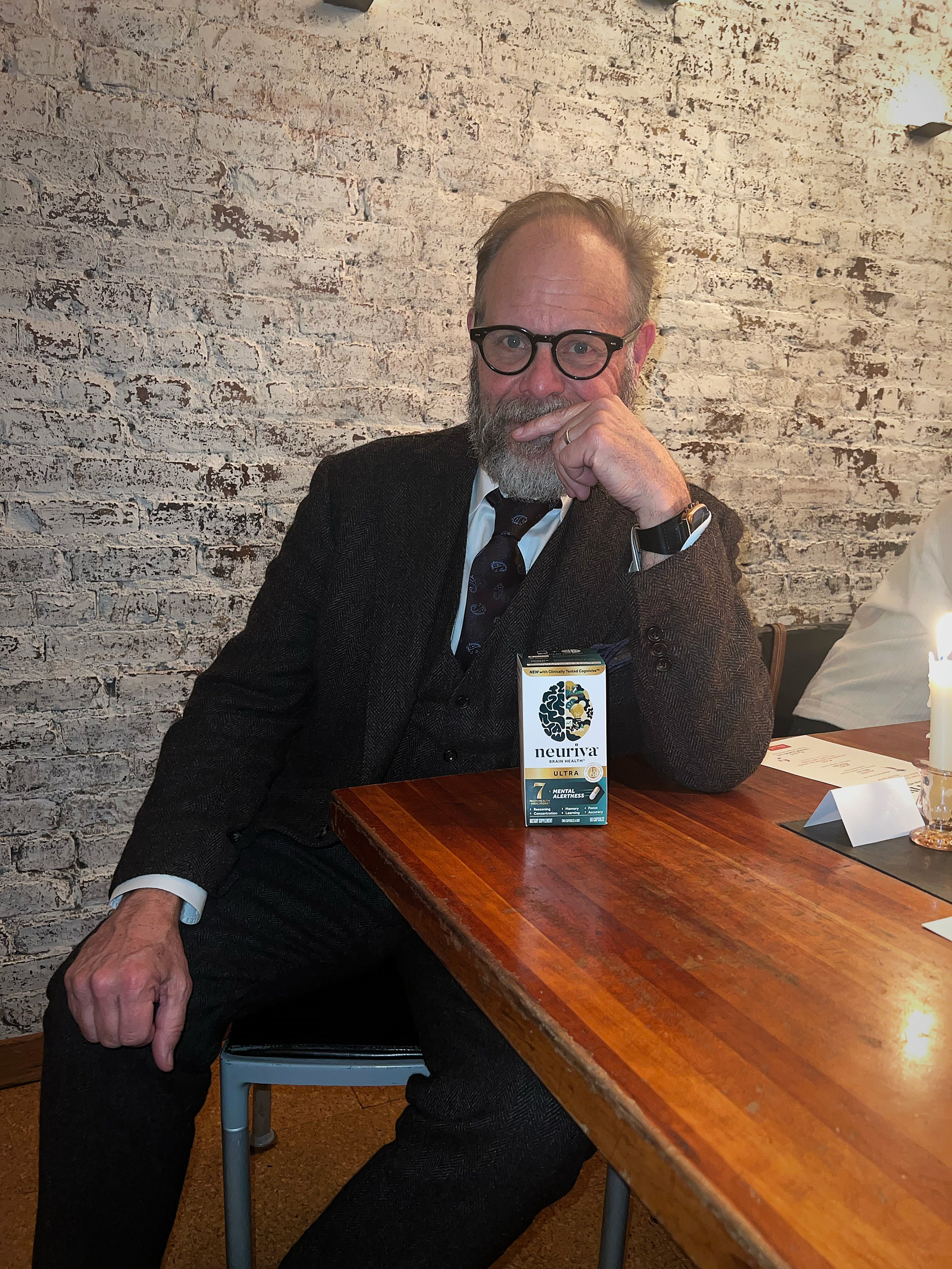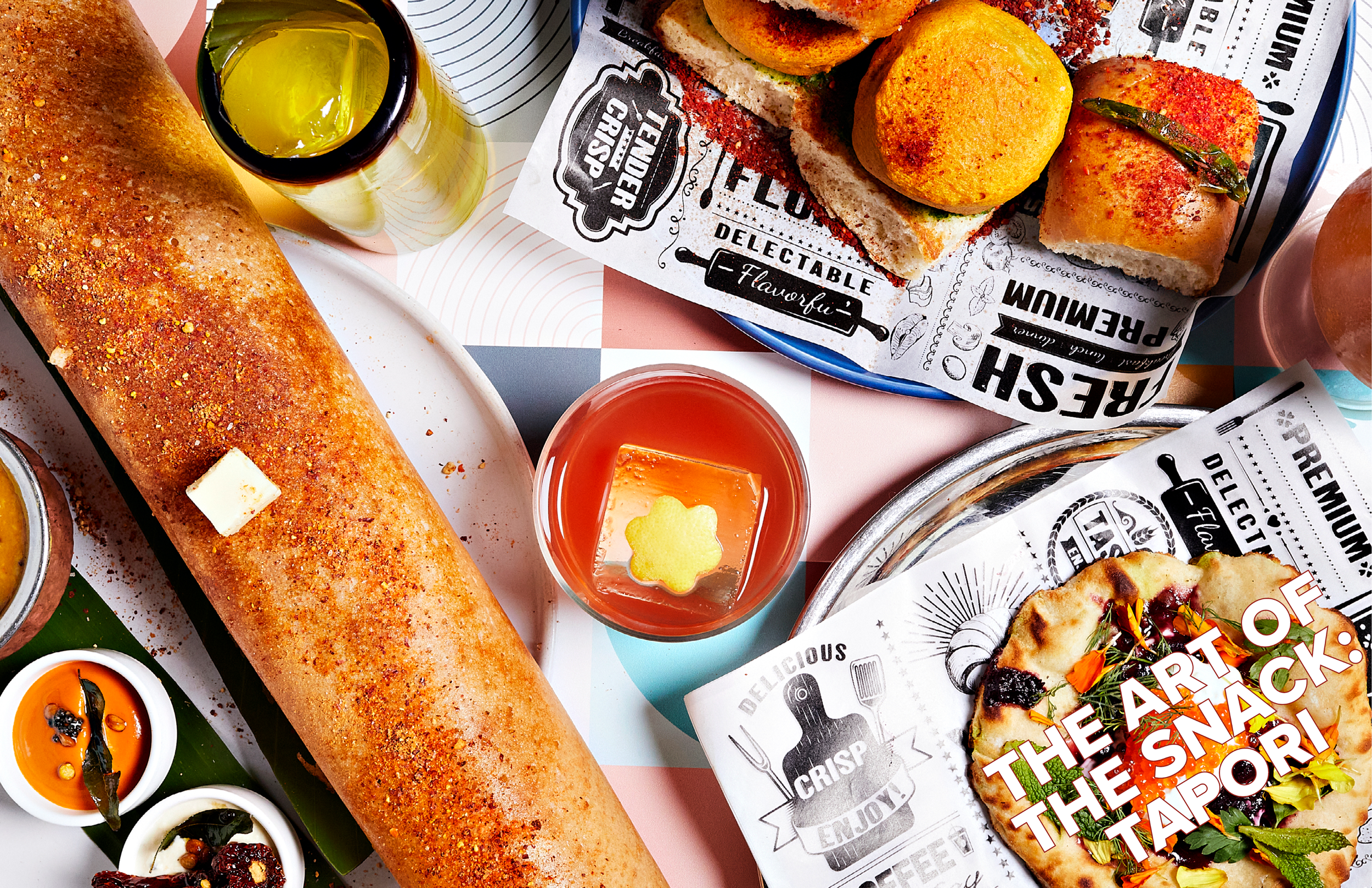This month, we had the pleasure to sit down and talk with Chef Alton Brown who is known as a TV Personality, super informative food scientist, author, voice actor, and cinematographer. Growing up, we enjoyed watching Food Network's Good Eats so much, which examined the origins of ingredients, and shares culinary customs and shared recipes with us. In addition, we enjoyed watching him host Iron Chef America on the network as well as Netflix's Iron Chef: Quest For An Iron Legend.
His passion behind the science of food, as well as its history, is always exciting to learn about. We took some time to find out about brain health, how he got into the industry and his partnership with Neuriva.
ATHLEISURE MAG: I have been a fan of your work ever since 1999 when I saw the first episode of Good Eats on Food Network!
ALTON BROWN: Oh wow! You were in grade school?
AM: Hmm ’99, I was in college!
AB: It’s funny, it still sounds recent. When I hear someone say 1999, I’m like that’s not too far away!
AM: Same! I was born in ’79 so I don’t feel it’s that far away!
AB: I graduated from high school in ’79!
AM: We’re always talking about health – fitness, gut, mental, and we don’t always get to brain health. But that is an important component as well. Why is it important to you?
AB: Well I really started to think about it a lot when I was thinking about the fact that I was going to turn 60 soon. I studied nutrition so much and I have read so much about it – I have probably forgotten a lot but, I hadn’t really spent a lot of time thinking about what my brain actually needed from me from a culinary standpoint, a supplemental standpoint, an exercise standpoint, or any standpoint. So I started doing a fair amount of research from a few years ago reading peer review papers and I have always enjoyed research. When I got a call from Neuriva, I was like, I already know what is in there, because I have already read papers on ashwagandha and papers on NeuroFactor and so it was very clear to me very quickly that they were very into the science, as was I. That’s how that started and that’s how I got interested in learning about what brains need and they are very complex organs. They do need things and a lot of what it is that they need, is that we need to feed them. The rest, I think supplementally helps.
For me, I break it down into exercise, quality sleep – which most of us do not get – as sleep is gigantic and really almost more important than exercise, nutrition, and what I call – brain stretching. For me, I always need to be in a state of always learning about something that I don’t know. It’s about studying and not just reading for fun. I have to have the ability to actively acquire information.
AM: Yeah, like putting the pieces together.
AB: Right, or my brain gets lazy. It does the equivalent of cracking a beer and sitting down in front of the TV if it’s not actively learning. That’s my brain – not me!
AM: Of course not you!
AB: I’m not a beer person!
And the other part is supplements. When I was studying nutrition from a brain standpoint, I thought there are a lot of things that I would like to get, but it’s just hard to get in food. You can, but not easily because you would have to eat a whole lot of something that you don’t want to. So I break it down into those 5 parts. I try to learn and now that I am in my 60’s, I need to try to learn enough so that my brain can continue to go for perhaps a little while longer.
AM: So what is Neuriva?
AB: You mean the actual supplement itself?
AM: Yes!
AB: Well, there are several of them. They have different things in them, but really, it’s a matter of adding, so the original Neuriva has this thing called NeuroFactor which is an extract from coffee berries – not the seeds, the berries. It also has Phosphatidylserine which is a phospholipid which supports cell membranes especially in the brain. So those 2 chemicals together – originally they were obtained from animal sources and then someone figured out how to get them from soybeans so it’s vegetable derived now. But those 2 things together formed a core of the two nutrients that I was interested in that I couldn’t just get.
You can get coffee berries for your beverage, but you need a lot and I’d rather take them in this supplement. On top of that I don’t really like the way that it tastes. For the Phosphatidylserine, it’s just almost impossible to get. So, those 2 things help you do maintenance for connectivity and cell membranes and then they added Neuriva Plus which brought B6 and B12 to they party. They are very symbiotic vitamins for brain health with those others. Then when Ultra came out, that added an extract from a member of the ginger family – Galangal – there are 4 different kinds of Galangals in the ginger family. They are wonderful for enhancing alertness. I like that one because it also works symbiotically with caffeine. It doesn’t have caffeine, but it works with it and I am a coffee person, so I have moved to that. It’s the same package plus the B Vitamins, plus that extract so it’s kind of like, you can get the base model or the extra! Of course when they come out with their next one, I don’t know! Because now that they have used Ultra, I told them to be careful about that as when it's out, what are you going to do? I mean what’s next, Super Ultra?
AM: Just hearing you talk about how you delve into the base parts of how things come together, how did you come to the culinary industry?
AB: I was a filmmaker, cinematographer, and director for TV commercials. I watched food shows and back in the late 80’s and the 90’s, I thought that they were boring and I knew that I wasn’t really learning anything. It was like, I have another recipe, great. But I don’t know why and I don’t know why any of this works?
I wanted shows that were more exciting and more visual. I wanted to know more on why that was going on and no one wanted to make that show.
So I quit and I went to culinary school. When I went to culinary school, I realized that they weren’t going to show me why either. Luckily, there was another college in this little town I went to for culinary school in Vermont and they had a library that we could use. So they would publish their chemistry reading list and I just went and started studying it because unfortunately, science is the answer to just about everything. There’s a science play everywhere, not necessarily for matters of the heart, but everything else.
So I think that I got addicted in a way that was chemical to telling those stories and to get people excited and to get people to be curious. It sparked in me a curiosity engine that I wouldn’t want to turn off.













